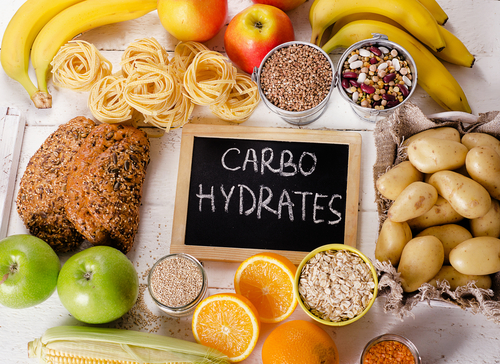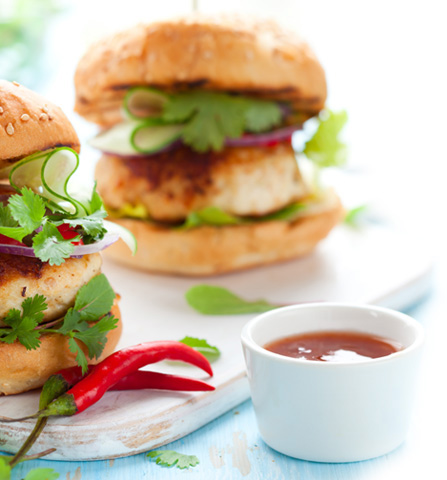The Carbohydrate Controversy

It’s May and this month we will be talking all about the Superfood: Whole Grains!
Over the years, carbohydrates have gotten bad press. You may have heard that carbs lead to weight gain, diabetes, or increase inflammation. Well we’re here to bust that myth and show you why carbs are not the enemy.
Carbohydrates are one of the three macronutrients (along with protein and fat), which means they are one of the main sources of energy for our body. They consist of sugars, starches, and fibers and are found in grains, fruits, vegetables, legumes, and dairy products.
Simple vs Complex Carbohydrates
There are two groups of carbohydrates – simple and complex, or refined and whole grain. The difference lies in how they are broken down in the body. Simple or refined carbohydrates are absorbed quickly, which could lead to blood sugar spikes and crashes. Examples are white bread, baked goods, soda, honey, and syrup. Complex carbohydrates are larger molecules and are absorbed more slowly, which keeps our blood sugar steady. Examples include whole grains, legumes, fruits, and vegetables. These types of carbohydrates pack a nutritious punch providing a variety of vitamins and minerals including Vitamin C, magnesium, iron, and B vitamins. Complex carbohydrates also tend to be higher in fiber, which helps us feel satisfied longer. The high fiber content of complex carbs can also help lower LDL, or the “bad” cholesterol, maintain digestive and heart health, and keeps blood sugar consistent. Simple carbohydrates definitely have a place in a healthy diet, restriction is not the answer. A consistent intake of carbohydrates, both simple and complex, throughout the day is essential to maintain proper health, well being, and energy levels. In fact, simple carbohydrates are recommended prior to exercising. They are low in fiber and fat, so they will digest quickly and prevent cramps or stomach pain. When we are exercising, we want all of our energy dedicated to our activity, rather than digesting complex carbs or fatty foods. Depending on when you eat before exercising, try having a sports drink, granola bar, crackers, or fruit, to give your body the energy it needs. To keep up with our energy demands during exercise, and not “hit the wall,” we need simple carbohydrates. The refined carbs will digest rapidly to restore our body’s depleted energy. Don’t forget about consuming carbohydrates after a workout as well! Carbs will help recover the energy lost during exercise and allow protein to help repair and rebuild muscles. Chocolate milk is a standard post workout recommendation because it contains a nice balance of carbs, protein, and fat. You could also enjoy a bagel with eggs and fruit, or rice with grilled chicken and veggies.
Carbohydrates have also been shown to improve our mood by boosting the brain’s release of serotonin. The B vitamins within whole grains help keep energy levels up, while easing stress and improving memory. Magnesium found in whole grains, helps fight anxiety and depression by producing serotonin.
Including More Carbs in your Diet
Start with Breakfast
- Try steel cut or old fashioned oats topped with your favorite fruits and nut butter
- Get creative with a breakfast quinoa bowl drizzled with honey
- Toast a whole wheat English muffin to accompany scrambled eggs with veggies
- Combine a few high fiber cereals, mix in raisins, and add milk
Move on to Lunch
- Pack a sandwich on whole wheat bread loaded with lean protein and vegetables
- Chop up a big green salad, top with croutons, with a whole grain roll on the side
- Make a blended burger – meat + grains – and serve on a whole wheat bun
- Try a pizza on a whole grain or cauliflower crust
Finish with Dinner
- Top farro with veggies and meat for a yummy grain bowl
- Stir fry brown rice with peas, corn, and an egg. Add chicken for some extra protein.
- Bake a potato or sweet potato and serve with fish
- Cook whole wheat spaghetti and turkey meatballs
Don’t Forget About Dessert
- Bake apples and top with cinnamon and brown sugar
- Make a peach crisp with an oatmeal crumble
- Mix berries and top with whipped cream
- Grind up oats and use as flour in baked goods
What about Snacks
- Have a banana and nut butter
- Make your own trail mix with dried fruit, nuts and seeds
- Cheese and crackers make a great pair
- Top yogurt with fruit and granola
Busting the Carbohydrate Myth
All in all, balance is important – our diet should consist of all three macronutrients to stay energized and healthy. There are a ton of fun whole grain products out there to try like freekeh, barley, or soba noodles, bean based pastas like chickpea, black bean, or lentil, whole grain bread, cracker, and cereal varieties. Without enough carbohydrates, we may start to feel dizzy and lose concentration. Carbohydrates have also been shown to improve our mood by boosting the brain’s release of serotonin. The B vitamins within whole grains help keep energy levels up, ease stress and improve memory while the magnesium found in whole grains helps fight anxiety and depression by producing serotonin. Be sure to include a carbohydrate source at each meal!

